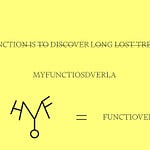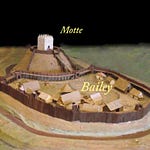The Darkness of the Teaching, 20th May 2020
Part of The Aion Prophecy is the statement, the dead stand behind me. Or even, you could paraphrase that and say, the dead stand behind you.
Now, this doesn't mean the dead as in your great, great, great uncle or some distant, tree-dwelling relative that existed millions of years ago. It means specifically the dead who are part of this lineage, or rather the work that it is that we do as men and women of alabaster.
At the time of the prophecy, I had no idea that's what it meant, I just thought it meant perhaps in general, I hadn't reached any conclusions. As it is with prophecies, you have to let it unfold and you only know what it actually means once it's transpired, although you can endeavour to make sense of it beforehand. But you have to be careful, because it's by trying to realise what is prophesied that you fall from that prophecy.
I had no idea that on the retreat I would be revealing the secret that was mentioned in the prophecy, otherwise known as the dodecahedron, the 12 sided object that symbolises the totality of the cosmology.
But on the runup to the retreat, some prior teachers who had now expired began to turn up, in my practice and outside of the practice. One of these people was Adi Da, otherwise known as Franklin Jones. And on a succession of days, a different ancestor would turn up. One time it was Sri Aurobindo, another time it was Sai Baba of Shirdi, and so on. And what's interesting about these encounters is that they didn't involve a vision of the individual in the past or how they were when they were alive, but rather where they were right now or what it is that they were involved in right now.
So I'll give you one example. Sri Aurobindo spent most of his life in the early 20th century - a good 25 years, something like that - sat in his room alone, trying to bring down or bring into reality something from eternity. I'm paraphrasing because he had his own language for talking about this, and it would take some introduction to be able to explain what those terms mean. But luckily we can just parse it into the language of Magia. So it's bringing something from eternity into time. It's very simple, really, when you think of it in terms of say, the seed and the fruit or the two worlds, but you can get quite elaborate in the way that Sri Aurobindo did with his language. But that's all we need to understand.
He was trying to bring something here and he ended his life as many teachers do by deciding to leave his body, because he could carry on the work in a much more efficient way once he was no longer in human form. So he carried on doing the work, and that's what all of these teachers do. It's what all of the ancestors do. They continue the work after they've died in a different form, which allows them to do it in a different manner. So Sri Aurobindo realized the state that he was attempting to realize. He just didn't do it in existence. But his work continues and it continues to have an effect here to the extent that it's realized by those people who will take up the work of the ancestors.
Sai Baba of Shirdi is very interesting. He's someone who lived in the 19th century. He was a saint in both the Muslim community and in the Hindu community. And he would talk in terms of The Quran when he spoke to Muslims or just as easily in terms of The Upanishads or The Bhagivad Gita when speaking to the Hindu community. So he bridged two communities. But the work that he did was involved in both and he would speak in an appropriate manner to each community.
He's a great example of what it means to be a man of alabaster in that he stood alone. He didn't belong to either group, did he? By straddling both, by presenting the essence of both to each group, he simultaneously stood beyond both of them. His story isn't one of a kind of liberal sentimentalism around multicultural tolerance. It was a demonstration of the honoring of - as I just mentioned - the essence of both religions. And thereby being beyond both of those forms. Now that's something else: that's being alone in a way that is not the same thing as our cultural understanding of individualism versus collectivism. The individualism that we have is just another version of collectivism.
It's a collective individualism, it's a mass mindedness.
If you travel around - especially in the southern parts - of India, you'll see pictures of Sai Baba in tuk-tuks or in taxis as they drive you around. He's still very much venerated and honored as a great teacher.
I've already mentioned the key details: this idea of continuing the work after you've died and thereby making available the fruits of that work to people that are alive, such that the dead stand behind those people, but only to the extent the people that are alive take up that work.
So the men and women of alabaster that currently walk the earth are taking up the work of the ancestors. That means being the inheritors of that work, which is the same thing as saying, being the inheritor of a nature that has an origin that we can say is found in the ancient past - because they too took up the work of ancestors that came before them - but ultimately, the nature of the ancestor and the nature of the work, which is the same thing as the nature that is realised with an awakening , has an origin that is outside of time.
So the ancient past becomes synonymous with eternity, doesn't it?
Last time I talked about the darkness and the fact that a lamp must be found in the darkness for it to be a lamp. So it must be surrounded by darkness, surrounded by unconsciousness.
Where this path leads to is the realisation that ultimately existence can be understood as a place that's condemned, that's damned, incapable of being saved.
A prison.
And this is an increasing awareness, the more you travel along this path. But the mercy or the wisdom of the divine feminine is that where the goddess is found - and she's alone, she's alone in that darkness in the underworld - no one's to be found in the drama. This is when you do a binding, you discover that you were never really trapped in the role in the way that you think you were, because the role didn't exist except for your pretending. It has no basis in reality. And so you were never in there.
The same thing is true analogically with creation or existence itself.
The phrase that I used in reference to the ghost ship was, there's no one on board. And all that's left is the full moon reflecting your own light, and that's what the prison is, or the ghost ship: it's nothing other than the modification of your own light, the reflection of your own light, the reflection of a light that is alone, because there's no one on board, and that's what it means to be a lamp.
So how does this relate to the ancestors? Now it sounds rather dreary, , and depressing. That's why I called this, The Darkness of the Teaching.
If you look at the work of any ancestor, what do you find?
If you're really honest and if you look just to see what the case might be, you find absolute and complete failure.
Adi Da had lots of followers. He accumulated a lot of money to make the teaching work happen in the world, to facilitate it. Built different centres. Someone even gave him a Fijian island that he could live on. Paradise on earth!
You might say that looks like success, but if you listen to what Adi Da had to say himself: he began teaching as if he was a friend, he would be friends with his students. Then he began to realise that wasn't really working, so he made it more formal. Refused to teach in the way that he'd done before and instead just gave discourses.
Still displeased with the results in his community, with the people going through the motions, the fake devotion, the lack of realisation, he brought in renunciation. Eventually got to the point where he wasn't going to speak anymore to his students. Instead, he went into silence and would just give sacred sighting for transmission. In the year 2000, he thought that he was going to become the world teacher. Recognized globally as a world teacher. Never happened. And you can see that he basically became more and more isolated on his island until he was just there alone, really.
And then, just before he died, he said, there's absolutely no way I'm coming back. And then he expired.
What would be the criteria for success for a teacher?
Is it the reception of an island? Is it the lavish gifts that your students might give you? Is it driving around in luxury cars? Is it being on the news?
Contrast that with Aleister Crowley. Aleister Crowley declares himself a prophet after years of denying the fact. Repeatedly people lied about him. He was hated in the press, vilified around the world. He didn't care what people thought about him, but in the end, there was no one to carry on with his work. And with his death, that was the end of his work.
He climbed mountains, set world records. Traveled the world, wrote an extraordinary amount of work, basically revitalized Western esotericism.
And what did it count for?
Carl Jung: famous, groundbreaking scientist. Psychotherapist. Followers. An institute. And yet the entire time complaining that no one was understanding what he was saying. And then, even in his eighties, he couldn't bear to speak to any of his students anymore. They were getting it so wrong.
His students set up an institute. He made a joke. He said, my grandfather, who was also called Carl Gustav Jung, used to run a school for retarded children. And now look at me. I run a school for retarded adults. But that's what he said about his own students. He was depressed, extremely depressed, and then he died.
What does success look like?
What about the ancient teachers though? They got it right, didn't they?
Didn't Jesus Christ get it right? Within a generation his teaching was turned upside down and became something very different, and then we have the church.
Do you think Buddhism is the Buddha's teaching? For a great span of time, Buddhism, in the form of Mahayana, meant that all you had to do was believe the fact that you already had a Buddha-nature and therefore you didn't have to do anything.
It was the great predicament that Dogen wrestled with. Why the practice if we're already enlightened? And he resolved that problem, something that isn't often recognised. That's what his whole work was about. Another ancestor, by the way, whose work is taken up in the fire practice specifically.
Again, what does success look like?
For Dogen, he ended up with a monastery, state funded. Hundreds of students. His control over what his students did was so all pervasive that there were rules for how you would use the toilet, how long you would spend there, what position you'd sleep in. Everything was predetermined. Within a generation, no one understood Dogen anymore.
What does success look like?
Do you think Islam represents the teaching of The Quran? ‘There shall be no compulsion in religion’ - right there in The Quran. Anyway, I could go on and on.
What's the criteria for success?
The practice is to start off in darkness, isn't it? As a seed, and we travel through that darkness such that the seed will eventually bear fruit, but we have to travel through the darkness. Without which, there would be no sewing of the seeds of eternity in time, without which there would be no creation. That's why we say the practice or the work is to complete the circle of creation. That's what we do each time we practice. That's what every realisation is. That's why we recapitulate or reincarnate the cosmology or creation whenever we do a practice, whenever we have a realisation.
But ultimately, you're going to end up understanding that there's no one on board, but it is being managed. Just like a drama. The Mystery of Magical Reality: it's being managed, being conjured into form, but ultimately there's no one on board. There is just the ‘alone with the alone’. A phrase from Sufism.
That means that the function of an ancestor or a teacher, or the men and women of alabaster, as a lamp is to bring the light, but you are not the light itself.
You bring the light, but you are not the light itself.
Who and what you are as a human being is part of the darkness, isn't it? Ultimately, there's no one on board. Ultimately, this body and all your hopes and dreams will be damned and condemned. All your expectations, all of your ideals. No help, no salvation, no restoration.
But the light was brought and the circle was completed such that creation can continue. And that which is the light remains the light. There was always the light.
That must mean that for someone who takes up the work of the ancestors, who brings something that they've made possible into the world - to continue an inheritance, a divine inheritance that's miraculous, impossible; and to reincarnate or recapitulate that divine inheritance in the form of a teaching that's presented to the world - it means necessarily that the teaching will be inverted. It comes into the world and casts a shadow. And all of the people that gather to see the light, mistake the shadow for the thing itself. Within a generation, the teaching is lost, you might say.
But all that means is that you find yourself in the position, as a recipient of the teaching, of seeing its shadow. And if you were to be a man or a woman of alabaster, if you are to be a lamp or a light bringer, you must travel through the darkness of the teaching to realise the teaching in the world, to complete the work of the ancestors. So you must travel through the darkness of the teaching.
Otherwise, what is the growth that you go through as a student? What are the fruits that come out of a practice that you don't initially understand? You're traveling through the darkness of the teaching. And it's only through the casting of the shadow and then the traveling through the darkness of the teaching that the work of the ancestors can be taken up and continued by those few individuals - who through bringing the light, but not being the light itself: belonging to the darkness, that's what it means to be human being - become the reincarnation of those ancestors. Because their nature is inseparable from the work, which is inseparable from the nature itself that's being brought into the world.
So what does success look like for a teacher, for an ancestor?
What it looks like is the revelation of a teaching, to speak on behalf of something such that it can remain silent and be what it is, and such that it can be revealed and also veiled through the speaking.
The teaching is given.
A shadow is cast.
No one listens to the teacher.
They get it upside down and the wrong way round, thereby the light is protected, the forest doesn't burn, and eventually the teacher ends up alone. Alone with the alone, but nevertheless alone. Outwardly, it looks like failure, doesn't it? But it's through the casting of the shadow that it makes it possible for the work of that teacher to be taken up by those few students who do understand, and by future generations of the men and women of alabaster.
That's the trajectory of the path that you're on. But what looks like falling apart on the outside is something coming together on the inside. It's what makes it possible for the work to be continued elsewhere.
You could say that there's a curse to doing this kind of work, but there is also a blessing, and each is found in the opposite place you think you would find them.
The outward misery of walking this path is the inward sign of unquestionable success.
In the stories of the prophets, they would literally howl. They would literally howl like wild animals.
Howling in the night. No one's listening.
‘Look, this is where we're going! Won't someone please for the love of god, take responsibility for that ship that's just going round and round?’
That's the howling.
It's Jung, getting depressed and telling his English translator, Hull, to just get out. Just leave. It's Crowley shaking his head at the insane things that his students in America were getting up to, which eventually led to Scientology. It's Adi Da, ending up on his own, giving sacred sighting and then saying, ‘There is no way I'm coming back!’
That's the howling.
A howl, by the way, is also how wolves call each other home:
under a full moon,
in the night.








Share this post